Key Takeaways
1. Confucianism: A Moral Philosophy Shaping Chinese Civilization
"Guide them by edicts, keep them in line with punishments, and the common people will stay out of trouble, but will have no sense of shame. Guide them by virtue, keep them in line with ritual and they will, besides having a sense of shame, reform themselves."
Foundational philosophy. Confucianism, originating from the teachings of Confucius (551-479 BCE), is not merely a religion but a comprehensive moral and political philosophy that has profoundly shaped Chinese civilization for over two millennia. At its core, Confucianism emphasizes personal and governmental morality, correctness of social relationships, justice, and sincerity.
Societal impact. The philosophy advocates for a society built on virtue, where individuals strive for moral perfection and rulers govern through ethical example rather than coercion. This approach to social order and governance has had a lasting impact on Chinese culture, influencing everything from family dynamics to political structures. Confucianism's emphasis on education, self-cultivation, and moral behavior has been a driving force in Chinese intellectual and social life, shaping the values and worldview of generations.
2. The Junzi: Confucius's Ideal of Moral Nobility
"The superior man understands righteousness; the small man understands profit."
Moral exemplar. The concept of junzi (君子), or the "superior man," is central to Confucian philosophy. Unlike its original meaning of "ruler's son," Confucius redefined junzi to represent a person of moral nobility, regardless of social status. This ideal individual embodies virtues such as:
- Ren (仁): Benevolence or humaneness
- Yi (義): Righteousness
- Li (禮): Propriety or ritual correctness
- Zhi (智): Wisdom
- Xin (信): Trustworthiness
Transformative influence. The junzi serves as a moral exemplar, influencing others through their virtuous conduct. This concept democratized the idea of nobility, suggesting that anyone could achieve moral excellence through self-cultivation, regardless of their birth. The pursuit of becoming a junzi became a lifelong journey of moral improvement, central to Confucian ethics and education.
3. Ritual and Learning: Cornerstones of Self-Cultivation
"Is it not a joy to have friends come from afar?"
Ritual importance. In Confucian thought, li (禮) or ritual propriety is not merely about etiquette but a means of moral cultivation and social harmony. Rituals serve multiple functions:
- Expressing inner virtues
- Regulating social relationships
- Maintaining cosmic order
- Nurturing moral sensibilities
Lifelong learning. Confucius emphasized the importance of continuous learning and self-improvement. This commitment to education is encapsulated in his famous saying, "To learn and at due times to repeat what one has learnt, is that not after all a pleasure?" Learning in Confucianism extends beyond academic knowledge to include moral education and the practical application of ethical principles in daily life.
4. The Family as the Foundation of Social Order
"All people are my brothers and sisters, and all things are my companions."
Microcosm of society. In Confucian philosophy, the family is seen as the basic unit of society and the model for all social relationships. Key concepts include:
- Filial piety (孝, xiao): Respect and care for one's parents and ancestors
- Hierarchical relationships: Clear roles and responsibilities within the family
- Moral education: The family as the primary site for instilling values
Broader implications. The family structure serves as a template for social and political order. The ruler-subject relationship is often likened to that between father and son, emphasizing benevolence from above and loyalty from below. This familial model of society has profoundly influenced Chinese social and political structures throughout history.
5. Benevolent Governance: The Ruler as Moral Exemplar
"The ruler cultivates himself, and the people are transformed."
Moral leadership. Confucian political philosophy emphasizes the importance of virtuous leadership. The ideal ruler governs through moral example rather than coercion, embodying the virtues he wishes to see in his subjects. This concept is known as "ruling by virtue" (德治, dezhi).
Mandate of Heaven. The legitimacy of a ruler is based on the "Mandate of Heaven" (天命, tianming), which is contingent upon the ruler's moral conduct and ability to ensure the people's welfare. Key aspects include:
- Ruler's responsibility for the people's well-being
- Moral cultivation as a prerequisite for effective governance
- The possibility of justified rebellion against an unvirtuous ruler
This philosophy has shaped Chinese political thought for centuries, influencing governance styles and the relationship between rulers and subjects.
6. Evolution of Confucianism: From Classical to Neo-Confucian Thought
"Principle is one, its manifestations are many."
Dynamic tradition. Confucianism has evolved significantly over time, adapting to changing social and intellectual contexts. Key developments include:
- Classical Confucianism: Teachings of Confucius and early followers like Mencius and Xunzi
- Han Confucianism: Integration with state ideology and cosmological theories
- Neo-Confucianism: Synthesis of Confucian ethics with Buddhist and Daoist metaphysics
Neo-Confucian revival. The Song dynasty (960-1279 CE) saw a major revival and reinterpretation of Confucian thought, led by thinkers like Zhu Xi. Neo-Confucianism introduced new concepts such as li (理, principle) and qi (氣, material force), providing a metaphysical foundation for Confucian ethics. This revitalized tradition became the orthodox state philosophy until the early 20th century.
7. Women in Confucian Society: Roles and Expectations
"Women and petty men are especially hard to handle."
Traditional roles. Confucian society traditionally prescribed specific roles for women, centered around the domestic sphere. Key expectations included:
- The "Three Obediences": To father, husband, and son
- Virtues of chastity, filiality, and devotion to family
- Primary responsibilities in household management and child-rearing
Evolving perspectives. While classical Confucianism often marginalized women, later interpretations and modern scholars have sought to reconcile Confucian values with gender equality. Some argue that core Confucian principles of human dignity and self-cultivation apply equally to women, paving the way for more inclusive interpretations.
8. The Civil Service Examination: Institutionalizing Confucian Values
"In instruction there are to be no distinctions of status."
Meritocratic ideal. The Chinese civil service examination system, based on Confucian classics, was a key institution in imperial China for over a millennium. It aimed to select government officials based on merit rather than birth, theoretically allowing anyone to rise to high office through education and moral cultivation.
Cultural impact. The examination system had profound effects on Chinese society:
- Standardization of education around Confucian texts
- Creation of a scholar-official class devoted to Confucian ideals
- Promotion of social mobility (albeit limited)
- Reinforcement of Confucian orthodoxy in government and society
While the system had its flaws, including corruption and rote memorization, it played a crucial role in spreading Confucian values throughout Chinese society and government.
9. Confucianism's Enduring Legacy in Modern China
"To struggle against Confucius, the feudal mummy, and thoroughly eradicate ... reactionary Confucianism is one of our important tasks in the Great Cultural Revolution."
Historical fluctuations. Confucianism's status in modern China has undergone dramatic shifts:
- Early 20th century: Criticized by May Fourth intellectuals as backward
- Mao era: Denounced as feudal, especially during the Cultural Revolution
- Post-Mao period: Gradual rehabilitation and renewed interest
Contemporary revival. In recent decades, there has been a notable resurgence of interest in Confucianism in China:
- Government promotion of Confucian values for social stability
- Establishment of Confucius Institutes worldwide
- Popular interest in traditional culture and philosophy
This revival reflects both top-down efforts to harness Confucian ideas for national cohesion and bottom-up interest in cultural roots and moral guidance. However, the interpretation and application of Confucian ideas in modern China remain subjects of ongoing debate and negotiation.
Last updated:
FAQ
What is "Confucianism: A Very Short Introduction" by Daniel K. Gardner about?
- Comprehensive overview: The book provides a concise yet thorough introduction to Confucianism, tracing its origins, development, and influence in China and East Asia.
- Key figures and texts: It explores the life and teachings of Confucius, the Analects, and other foundational texts, as well as major interpreters like Mencius, Xunzi, and Neo-Confucian thinkers.
- Themes and practices: The book examines core Confucian concepts such as self-cultivation, ritual, government, family, and the role of education.
- Historical and modern relevance: Gardner discusses how Confucianism shaped Chinese society, its institutionalization, critiques in the 20th century, and its revival in contemporary China.
Why should I read "Confucianism: A Very Short Introduction" by Daniel K. Gardner?
- Accessible expertise: Written by a leading scholar, the book distills complex ideas into clear, engaging language suitable for beginners and those seeking a refresher.
- Contextual understanding: It situates Confucianism within broader Chinese history, culture, and philosophy, helping readers appreciate its enduring impact.
- Comparative insights: The book draws comparisons between Confucianism and Western traditions, highlighting unique features and shared concerns.
- Contemporary relevance: It addresses Confucianism’s role in modern China, including its resurgence and debates about its place in society today.
What are the key takeaways from "Confucianism: A Very Short Introduction"?
- Confucianism is dynamic: The tradition has evolved over millennia, adapting to changing social, political, and intellectual contexts.
- Self-cultivation is central: Personal moral development, achieved through learning and ritual, is at the heart of Confucian thought.
- Society and government: Confucianism emphasizes the importance of virtuous rulers and officials, advocating governance by moral example rather than coercion.
- Family and hierarchy: The family is the crucible of virtue, and social harmony depends on fulfilling roles and responsibilities within hierarchical relationships.
Who was Confucius, and what is his legacy according to Daniel K. Gardner?
- Historical figure: Confucius (551–479 BCE) was a teacher and philosopher who looked to the early Zhou dynasty as a golden age of moral governance.
- Teacher over politician: Although he failed to secure political office, Confucius devoted himself to teaching disciples, whose records form the Analects.
- Transmitter of tradition: He saw himself as a transmitter of ancient wisdom, emphasizing ritual, moral cultivation, and social harmony.
- Enduring influence: Confucius’s ideas became foundational for Chinese education, government, and culture, shaping East Asian societies for centuries.
What are the core concepts of Confucianism as explained in "Confucianism: A Very Short Introduction"?
- Ren (true goodness): The highest virtue, encompassing benevolence, humanity, and empathy, realized through relationships with others.
- Li (ritual propriety): Rituals and proper conduct structure social life, cultivate virtue, and distinguish humans from animals.
- Junzi (superior person): An ideal moral exemplar, originally an aristocratic title but redefined by Confucius as attainable through self-cultivation.
- Self-cultivation and learning: Continuous moral improvement through study, reflection, and practice is essential for personal and societal harmony.
How does Daniel K. Gardner describe the role of self-cultivation and learning in Confucianism?
- Universal potential: Confucius taught that anyone, regardless of birth, could become a junzi through dedicated self-cultivation.
- Learning as moral growth: Study is not just for knowledge but for internalizing virtues and applying them in life.
- Ritual and sincerity: True learning involves sincere participation in rituals, which shape both outward behavior and inner character.
- Lifelong process: Self-cultivation is ongoing, requiring perseverance, reflection, and the integration of knowledge and action.
What is the Confucian view of government and the ideal ruler in Gardner’s book?
- Rule by virtue: The ideal ruler governs by moral example, inspiring the people through personal virtue rather than laws and punishments.
- Moral vanguard: A select group of cultivated individuals (officials and rulers) lead society toward harmony.
- Mandate of Heaven: Legitimacy depends on virtue; rulers who fail in their moral duties risk losing the right to govern.
- People’s welfare: Good government prioritizes the material and moral well-being of the people, with trust as the foundation of the state.
How do Mencius and Xunzi, as presented by Gardner, differ in their interpretations of Confucianism?
- Human nature debate: Mencius believed human nature is inherently good, with moral “shoots” needing nurturing; Xunzi argued human nature is evil and requires transformation through learning and ritual.
- Role of environment: Mencius emphasized gentle cultivation and the right environment; Xunzi stressed the need for strong external guidance and discipline.
- Learning and ritual: For Mencius, rituals adorn innate goodness; for Xunzi, they are tools to reshape and restrain natural impulses.
- Political implications: Mencius advocated benevolent rule and the right to depose tyrants; Xunzi was more pragmatic, accepting the need for law and punishment alongside ritual.
What is Neo-Confucianism, and how did Zhu Xi reshape Confucian thought according to Gardner?
- Metaphysical system: Neo-Confucianism, especially Zhu Xi’s synthesis, introduced concepts like li (principle) and qi (material force) to explain the cosmos and human nature.
- Mencian foundation: Zhu Xi affirmed Mencius’s view of innate human goodness but explained moral failings as the result of turbid qi.
- Structured self-cultivation: Zhu Xi developed a step-by-step program for moral perfection, emphasizing the “investigation of things” and focused study of the Four Books.
- Enduring orthodoxy: His interpretation became the basis for education, civil service exams, and official ideology in China for centuries.
How did Confucianism shape Chinese society, education, and family life in practice?
- Institutionalization: Confucianism became the state orthodoxy, with civil service exams based on Confucian texts determining official appointments.
- Education system: Boys (and some girls) were schooled in Confucian classics, with rote memorization and moral instruction central to the curriculum.
- Family structure: The family was patrilineal and hierarchical, with filial piety and ancestor worship as core practices.
- Social hierarchy: Confucian values ranked occupations and reinforced social roles, with scholar-officials at the top and merchants at the bottom.
How does "Confucianism: A Very Short Introduction" address the role of women and critiques of Confucianism?
- Women’s roles: The tradition largely excluded women from self-cultivation and public life, confining them to domestic roles and emphasizing obedience and chastity.
- Instruction for women: Elite women sometimes received education in Confucian texts to better fulfill their roles as mothers and household managers.
- Modern critiques: In the 20th century, reformers and revolutionaries blamed Confucianism for China’s “backwardness,” attacking its hierarchical and patriarchal values.
- Contemporary reassessment: While some still critique Confucianism’s gender roles, others seek to reinterpret or revive its teachings in modern contexts.
What are the best quotes from "Confucianism: A Very Short Introduction" by Daniel K. Gardner, and what do they mean?
- “The superior man understands righteousness; the small man understands profit.” – Highlights the Confucian ideal of prioritizing moral integrity over self-interest.
- “Guide them by virtue, keep them in line with ritual and they will, besides having a sense of shame, reform themselves.” – Emphasizes the transformative power of moral example and ritual over coercion.
- “Heaven sees as the people see; heaven hears as the people hear.” – From the Book of History, this quote underlines the Mandate of Heaven’s dependence on the welfare and will of the people.
- “At fifteen, I set my mind-and-heart on learning. At thirty, I stood on my own. At forty, I had no doubts…” – Confucius’s autobiographical reflection, serving as a template for lifelong self-cultivation.
- “All people have a mind-and-heart that cannot bear to see the suffering of others.” – Mencius’s assertion of innate human compassion, foundational to his optimistic view of human nature.
Review Summary
Confucianism: A Very Short Introduction is highly praised for its concise yet comprehensive overview of Confucian philosophy. Readers appreciate its accessibility, historical context, and exploration of key concepts. Many find it enlightening, noting parallels with Western thought and its relevance to understanding modern China. The book's structure, clarity, and unbiased presentation are commended. While some desire more focus on modern applications, most agree it's an excellent primer that sparks interest in further study of Confucianism.
Very Short Introductions Series Series
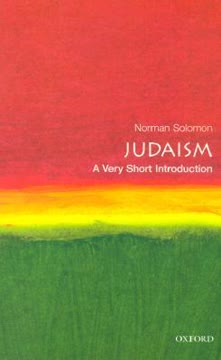
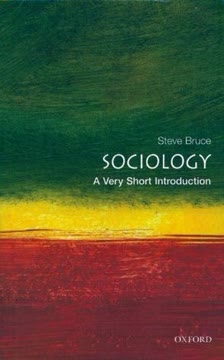
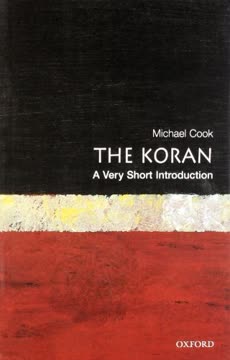
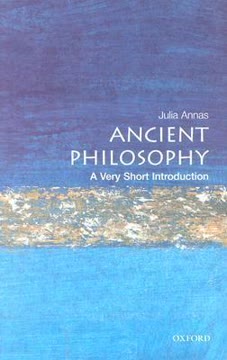
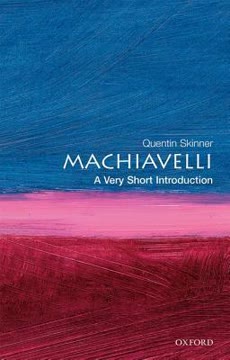
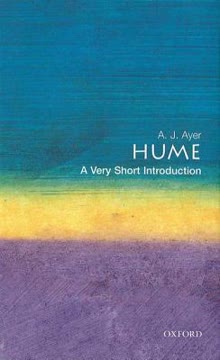

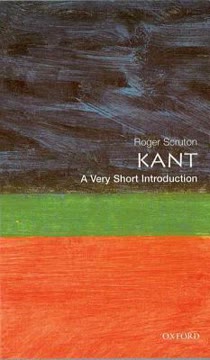
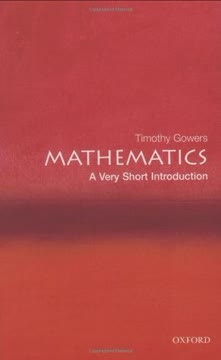
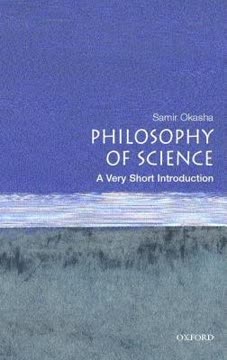
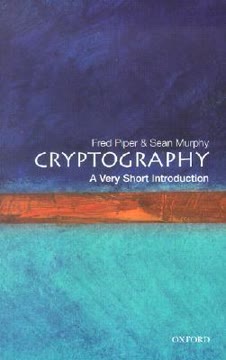
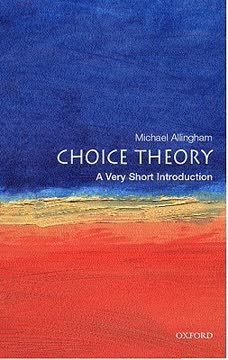
Similar Books
Download PDF
Download EPUB
.epub digital book format is ideal for reading ebooks on phones, tablets, and e-readers.











